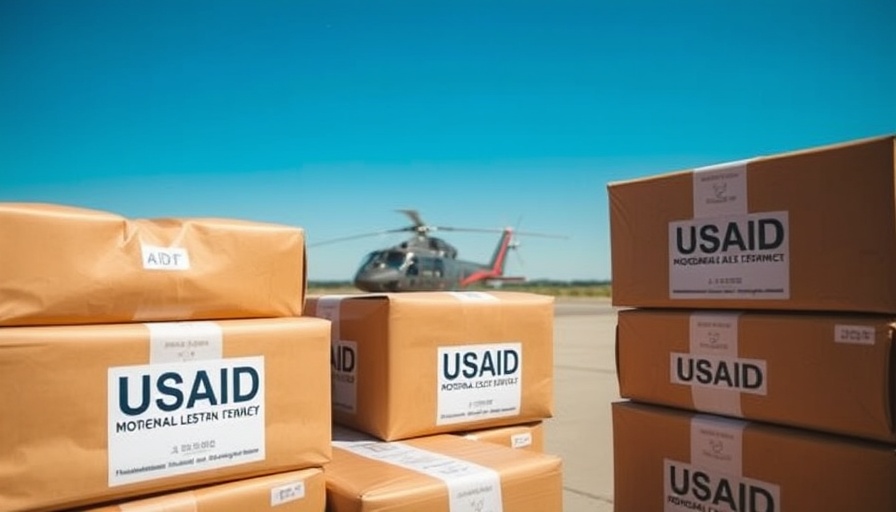
USAID's Departure: A Defining Moment for Africa’s Health Sector
African healthcare is at a crossroads. With the exit of USAID's essential funding and expertise, particularly in programs like PEPFAR, the landscape of healthtech is changing rapidly. This absence voids critical support that optimizes last-mile delivery of services and training for healthcare workers. Without this, many believe the hard-won progress in the health sector could be jeopardized.
The Role of Healthtech in Recent Progress
Over the past decade, healthtech has become a lifeline across Africa, transforming healthcare delivery from remote villages to urban centers. Innovations fueled by funding from organizations like USAID have been pivotal in providing telemedicine solutions and digitizing medical supply chains. For instance, Maisha Meds, a healthtech startup, leveraged $5.25 million from USAID to scale affordable malaria services, exemplifying the potential of tech solutions when backed by reliable funding.
The Imperatives for Change: What’s Next?
With USAID's exit, a few critical imperatives emerge to forge ahead:
- Policy Over Platitudes: African nations must prioritize healthcare as an economic issue, moving towards robust domestic investment and regulatory frameworks. Take note, Nigeria allocates only 5.18% of its budget to health, falling significantly short of the Abuja Declaration’s 15% goal.
- Local Partnerships are Key: Collaborations between healthtech startups and local organizations can sustain innovative solutions. Ghana's mPharma, which acquires struggling pharmacies, shows that localized strategies could effectively improve drug access.
- Diversifying Investment: Venture capitalists are urged to step in where USAID has left off. Innovative funding tools like revenue-based financing are essential for sustaining health solutions such as EHR systems and telemedicine.
- Advocacy Efforts: Organizations like the African Union must champion local healthcare systems, emphasizing the importance of a united front in healthcare improvement.
Bright Horizons Ahead
Despite the challenges posed by USAID's departure, Africa's healthcare and tech sectors can leverage this moment to innovate and build stronger, more resilient systems that do not solely depend on foreign aid. By fostering local talent and initiatives, Africa's healthcare can advance towards autonomy and sustainability.
As healthcare evolves, tech entrepreneurs and investors must seize the opportunity to reshape the future. Enhanced collaboration, policy changes, and local solutions can redefine healthcare in Africa, steering it away from the shadows of dependence and into a brighter, self-sufficient future.
 Add Row
Add Row  Add
Add 


Write A Comment